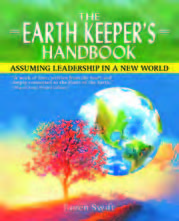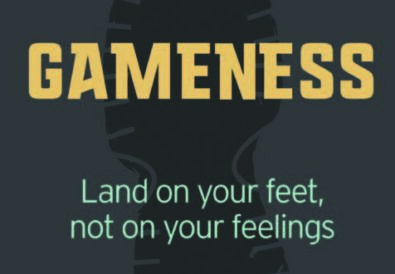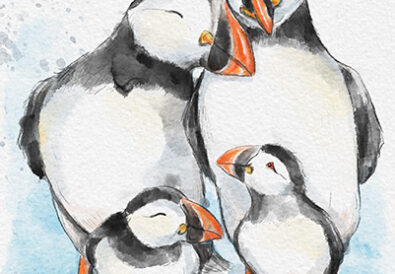Without empathy, a lack of care and concern takes its place, resulting in a kind of isolation bordering on social deprivation. Ongoing disconnection in our relationships can start to pull at us, draining our energy and inciting misunderstandings that can lead to conflict. Empathy is the antidote to disconnection. It is the ability to share someone else’s feelings, an invaluable trait that has served human evolution.
Empathy is truly a survival skill and one of the keys to our success as a species. It’s hard to imagine a tribe or community wherein the members could not comprehend one another, could not stand in a family or community member’s shoes, feel for a neighbor, or relate to a relative’s suffering. And yet, in the international arena as well as social media, that is exactly where we are deficient. Even inside our own families we may come up short on empathy for the people closest to us.
Many of us are starved for connection, particularly after over a year of mandated separation and isolation. Empathy for ourselves and others is one potent way to remember our connections and strengthen our bonds.
Empathy can be created when we focus on the things that we have in common, the things we share. When we share time and physical space with others, we are more likely to share personal anecdotes and sense others’ likeness to ourselves. This is instrumental to our sense of belonging. No matter who someone is, however, we can invoke their humanity in our eyes knowing that they, too, have come through hardships and struggle, want the best for their children and work to make ends meet. This is empathy: the recognition and acknowledgement of one another’s trials, tribulations, successes and failures. The more we listen to others with empathetic presence, the more we trust ourselves to navigate conversations while caring about both of us. Listening in this way alleviates the tendency to react before reflecting. It decreases the potential for misunderstanding and conflict while bringing a quality of connection that nourishes our daily interactions. Over time, we gain more confidence in speaking transparently and sharing our feelings and needs openly in the conversation.
Empathy facilitates us to experience the witness effect. Both people are nourished by such an exchange. To witness another is to be present with compassionate objectivity and to receive them just as they are. When we are witnessed, we feel more complete simply by being understood. This exchange has helped to weave connections and forge alliances throughout time. Successful relationships of all kinds thrive on empathy. It’s a quintessentially human quality, this capacity to care about others, even those we don’t necessarily like.
The ability to adopt another’s point of view is tantamount to getting along. It means that we can see something from another perspective, whether or not we agree with it. This skill in particular is crucial for us to revive now. Somewhere along the line we have forgotten that it is understanding one another— within the context of our differences—that foments trust and belonging. Agreement isn’t necessary in order to relate, but understanding is. Sometimes we resist really listening to others, erroneously thinking that if we understand someone, then we must agree with them. Not so. But when we work things through so that both parties come to understand and respect one another, we build trust.
Many of the opportunities people previously had for connecting have vanished in our current systems of socialization. We may rarely see or even talk with our neighbors, let alone help them with a barn-raising. In the age of the world-wide-web, it is possible to live in a virtual reality, a kind of self-induced isolation. Social media has sped up time, shortened distances and minimized our capacity for listening to others. Steeped in the world of social media we can think we are connecting, but neurologically we remain disconnected from one another. Person to person connections are made in the immediacy of physical presence and verbal exchanges. When we fully engage our mirror neurons in real-time with our physical presence, the instinct to care about others arises. We need to listen and understand one another to work things out. Trust is strengthened when we work together to find solutions that include everyone involved, even when agreement isn’t apparent. This is how lasting relationships are made and fortified.
To make room inside for self and other at the same time, with our differences, is our evolutionary leap forward, just as developing mirror neurons was in early hominids. The sign flashing ahead of us now tells us that there truly is no “other.” There is no one out there who is not of our village. Everyone on the planet is part of our group. We share a beautiful home in the sparkling expanse of the cosmic panorama. The Dalai Lama says, “This recognition that we are all connected— whether Tibetan Buddhists or Hui Muslims—is the birth of empathy and compassion.” A fresh page in our collective story is written every time one of us chooses understanding over shunning. As the leaders of our time, we are the authors of this new story, the creators of a worldview that speaks to our interconnectedness.

 Loren Swift, the author of The Earth Keeper’s Handbook: Assuming Leadership in a New World, has a deep appreciation for the scientific, the psychological and the mystical. Swift was a licensed psychotherapist working in the field of addiction recovery and dissociative disorders in Santa Fe, NM. She has been a certified Nonviolent Communication trainer since 2005 and has worked as a life coach for nearly 20 years, integrating her various backgrounds to support couples and families in finding tenderness, joy and connection through mutual understanding and to support collaborative group endeavors for systemic change. For a more transformative experience, Swift has also created “The Earth Keeper’s Handbook Companion Program,” a 16-lesson, video-based home-study program to deepen understanding of the lessons in the book and demonstrate how they apply to real-life situations. To learn more, please visit earthkeepersall.com, or connect with her on Facebook (@lorenswiftbooks), Twitter (@earthkeepersall)
Loren Swift, the author of The Earth Keeper’s Handbook: Assuming Leadership in a New World, has a deep appreciation for the scientific, the psychological and the mystical. Swift was a licensed psychotherapist working in the field of addiction recovery and dissociative disorders in Santa Fe, NM. She has been a certified Nonviolent Communication trainer since 2005 and has worked as a life coach for nearly 20 years, integrating her various backgrounds to support couples and families in finding tenderness, joy and connection through mutual understanding and to support collaborative group endeavors for systemic change. For a more transformative experience, Swift has also created “The Earth Keeper’s Handbook Companion Program,” a 16-lesson, video-based home-study program to deepen understanding of the lessons in the book and demonstrate how they apply to real-life situations. To learn more, please visit earthkeepersall.com, or connect with her on Facebook (@lorenswiftbooks), Twitter (@earthkeepersall)




















